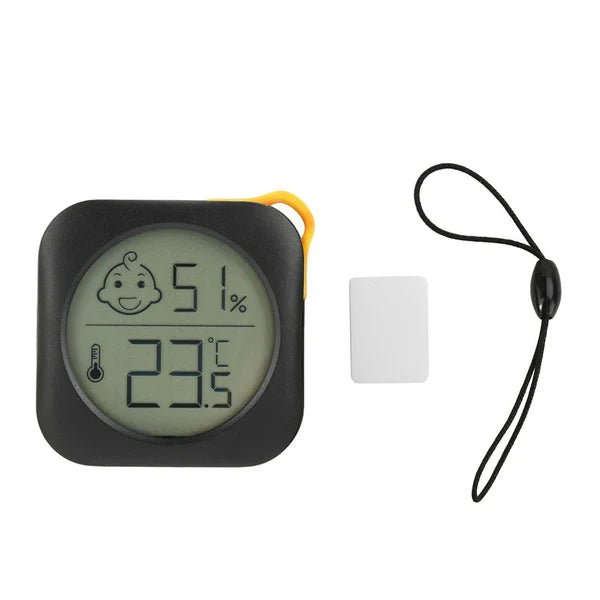
The Science of Humidity: Why a Humidity Meter Detector is a Must-Have Tool
Share
Introduction
Humidity — it’s the silent player in our daily comfort, yet most of us don’t think about it until problems arise. Whether you’re managing a home, a greenhouse, a wine cellar, or even a storage space, controlling moisture in the air is critical. A Humidity Meter Detector isn’t just for weather enthusiasts — it’s for anyone who wants precision in protecting health, possessions, and productivity.
The Science Behind Humidity
Humidity is the amount of water vapor present in the air. The most common measurement is relative humidity (RH), expressed as a percentage.
- High RH: Air is saturated, moisture can condense, promoting mold.
- Low RH: Air is dry, leading to dehydration of skin, wood, and fabrics.
Humidity levels change based on:
- Temperature fluctuations
- Air circulation
- Geographic location
- Weather events
Why Measuring Humidity Is Crucial
- Preserving Materials: Museums, libraries, and art galleries use humidity control to prevent degradation of paintings, books, and historical documents.
- Preventing Mold: Mold spores thrive above 60% RH, damaging structures and triggering allergies.
- Industrial Processes: Electronics manufacturing, pharmaceuticals, and printing require controlled humidity for precision and safety.
- Personal Comfort: The human body responds strongly to moisture levels, impacting skin, breathing, and even perception of warmth.
Types of Humidity Meter Detectors
- Analog Hygrometers: Classic dial style, no batteries, but may need frequent calibration.
- Digital Hygrometers: More accurate, often with temperature readings and memory.
- Wireless Systems: Monitor multiple rooms via sensors and send data to your phone.
- Industrial-Grade Meters: High precision for labs, factories, and climate-controlled storage.
Features to Look For
When choosing a humidity meter, consider:
- Accuracy: ±2–5% RH tolerance is good for home use; ±1% for professional.
- Temperature Measurement: Useful for climate analysis.
- Data Logging: Track changes over time.
- Portability: Lightweight units for spot checks.
- Alerts: Some models beep or send notifications when humidity moves out of range.
Practical Applications
- Home Use: Avoid damage to hardwood floors and furniture.
- Gardening: Maintain optimal growing conditions in greenhouses.
- Wine Storage: Keep corks moist to prevent spoilage.
- Pet Care: Reptiles, amphibians, and exotic birds often need precise humidity.
- Workshops: Prevent rust and corrosion in tools and machinery.
Best Practices for Using Your Humidity Meter
- Place the meter at chest height for most accurate readings.
- Avoid corners or areas with stagnant air.
- Don’t put the meter directly above heaters or near open windows.
- For greenhouses, check multiple zones to avoid “microclimate” blind spots.
Common Mistakes to Avoid
- Ignoring calibration instructions.
- Leaving the meter in extreme environments for long periods.
- Forgetting to replace batteries.
- Expecting identical readings in different rooms without environmental control.
The Long-Term Benefits
Investing in a reliable humidity meter pays off by:
- Extending the lifespan of possessions.
- Improving air quality and reducing allergens.
- Helping you save energy by fine-tuning heating and cooling.
- Supporting hobbies and passions that depend on stable humidity.
Conclusion
Humidity control isn’t just about comfort — it’s about protection, preservation, and performance. A good Humidity Meter Detector empowers you to take precise action, whether you’re managing a home environment, a valuable collection, or a sensitive work process.
FAQs
1. What’s the ideal indoor humidity?
Generally, 40–60% RH is best for most people and possessions.
2. How do I calibrate my humidity meter?
Some models come with a calibration screw; others require a salt-test method. Check your manual.
3. Can humidity meters be used outdoors?
Yes, but ensure the model is weather-resistant and follow manufacturer guidelines.
4. Do humidity meters measure temperature too?
Most modern digital units do, but always check the feature list before buying.
5. How long do these devices last?
With proper care, a quality humidity meter can last several years.
